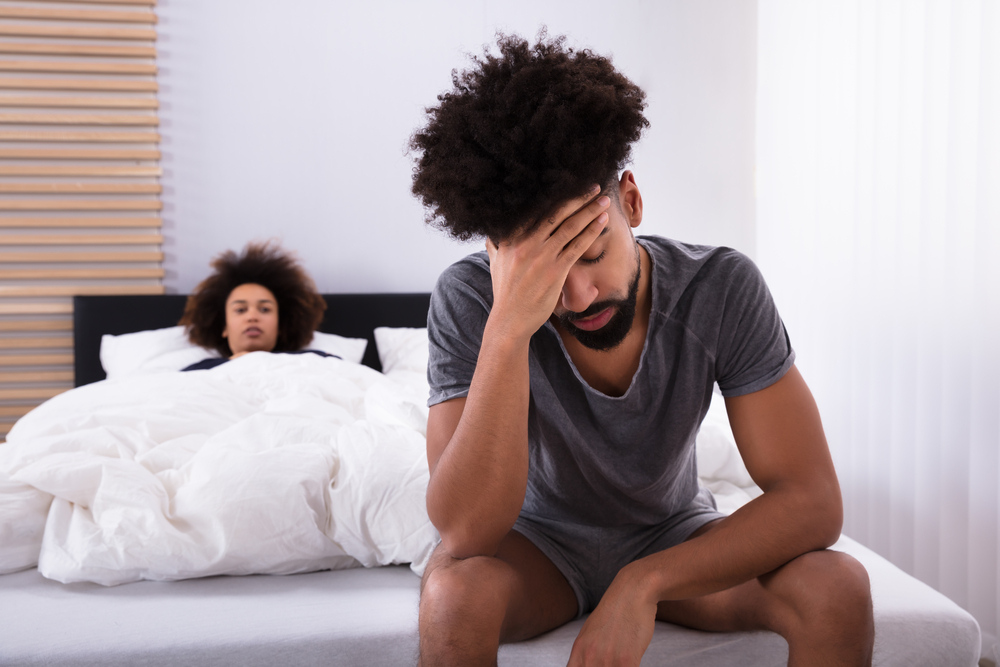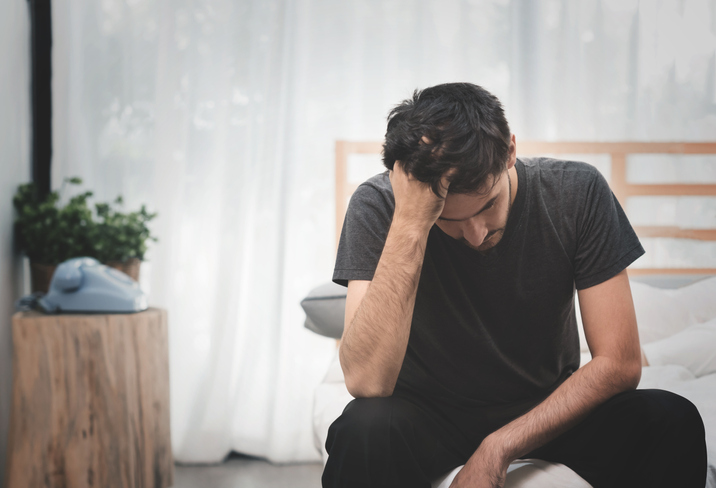
What Is Sexual Performance Anxiety and How Can One Manage It?

Sexual performance anxiety is fear, worry, or anxiety related to sexual activity. Although it is one of the most common sexual issues among both men and women, sexual performance anxiety is not recognized as a diagnosis. Nevertheless, it often accompanies and/or precedes other sexual dysfunctions. Severe sexual performance anxiety can perpetuate a detrimental cycle in which a person worries about their performance and is afraid of failure, experiences sexual difficulties, and then worries more about future performance.
In large-scale studies of men and women in the United States and United Kingdom, 6-16% of women and 9-25% of men reported feeling anxious about sexual performance for at least one month over the past year.
For women, sexual performance anxiety often manifests itself as distracting thoughts during sex, concerns about body image, and low sexual desire. Men, on the other hand, may experience sexual performance anxiety in association with erectile dysfunction (ED), premature ejaculation (PE), and/or distraction that decreases sexual arousal.
The impact of sexual performance anxiety on a person’s relationship and sex life can be far-reaching. An individual may lose self-confidence, start avoiding sex, and experience relationship difficulties or intimacy issues with a partner if they have one.
How can a person manage sexual performance anxiety?
To manage sexual performance anxiety, a person can practice being in the moment during sexual experiences, eliminating potential distractions, and focusing on sensations rather than sexual function. While there are no proven treatments for sexual performance anxiety due to a lack of studies specifically designed to address the topic, studies on non-sexual performance anxiety and ED treatments may provide a good starting point. Below is a list of potential treatment options that may help a person manage sexual performance anxiety, as identified by experts.
Cognitive behavioral therapy (CBT) is a type of psychotherapy that has been shown to be effective for treating non-sexual performance anxiety and social anxiety and is therefore recommended for sexual performance anxiety despite the lack of studies on the subject. CBT is aimed at changing patterns of thinking and behavior that are having a negative impact on a person’s life or well-being. When a person is able to think in a more clear and rational manner, they are able to respond to challenging situations in a more effective way. This is why CBT could be helpful for managing sexual performance anxiety.
Mindfulness meditation training is another technique that is useful for treating non-sexual performance anxiety and social anxiety. When a person practices mindfulness, the goal is to focus on sensations that are occurring in the present moment without passing judgement. Mindfulness-based interventions have been shown to help individuals regulate their emotions and manage their anxiety, which has positive implications for managing sexual performance anxiety.
Aids and medications such as oral pills for treating ED (known as phosphodiesterase type-5 inhibitors or PDE5is) may help as well. Men who are experiencing ED and premature ejaculation related to sexual performance anxiety may be able to use PDE5is to break the detrimental anxiety-sexual dysfunction cycle. Women may choose to use a personal lubricant and/or hormonal treatment (for menopausal women) to address sexual pain associated with sexual performance anxiety. They might also benefit from using a vibrator if they are experiencing difficulty with orgasm. Finally, experts believe that serotonergic anxiolytics (or anti-anxiety drugs) could have potential for treating sexual performance anxiety.
Resources:
- Pyke, R.E. (2020). Sexual Performance Anxiety. Sexual Medicine Reviews, 8(2), 183-190. DOI: https://doi.org/10.1016/j.sxmr.2019.07.001.






